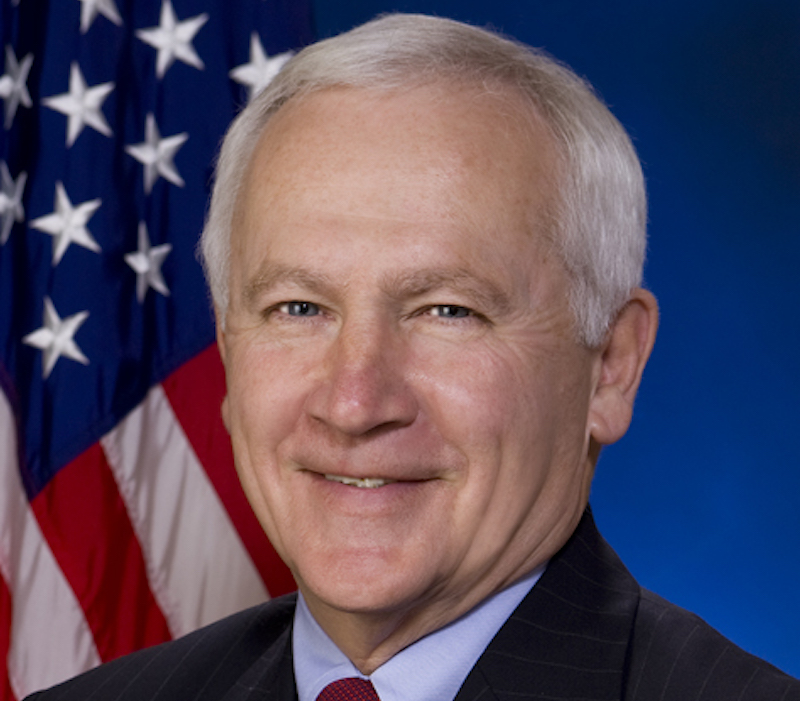A Pennsylvania state senator, who is responsible for a slew of legislation favoring the oil and gas industry, leases his own land to fracking companies, recent disclosure documents show. Last year, veteran lawmaker Gene Yaw of Lycoming County profited from royalties he received from several different drillers.
Yaw, who chairs the key senate environmental resources and energy committee, has been serving in the state legislature since 2008. In recent years he’s positioned himself as a champion of the oil and gas industry by advancing various pro-industry measures. The counties in the district he represents, located squarely on top of the Marcellus Shale, have thousands of active oil and gas wells.
In late 2016, Yaw co-sponsored a bill to bolster the rights of property owners leasing their land to oil and gas developers. Soon after, he introduced the “Pennsylvania Natural Gas Expansion and Development Initiative,” a bill that aims at dramatically expanding the production and transportation of natural gas in the state.
“We have an abundant natural resource beneath us,” Yaw wrote in support of the bill, “which can be used to help consumers lower their energy heating costs.” Earlier, Yaw half-jokingly told an audience at a midstream oil and gas conference that he’s contemplating a bill to ban transporting gas into New York, given the state’s own ban against hydraulic fracturing (fracking).
At the same time, Yaw benefits personally from Pennsylvania’s fracking boom. According to his most recent financial disclosure, last year he received income from five different drilling companies: Anadarko, Statoil, Alta Marcellus Development, Mitsui E&P, and Chesapeake.
From Pennsylvania state Senator Gene Yaw’s financial disclosure for 2017, showing income from drilling leases.
In 2013, a local reporter asked Yaw about land he leases in Lycoming County to Anadarko. The senator denied the lease poses a conflict of interest, noting that he leased the land before his election to the legislature. Yet as the most recent disclosure indicates, the number of oil and gas companies Yaw profits from has increased since he became a lawmaker.
According to Nick Troutman, a spokesperson for Yaw, the senator signed one lease about 12 to 15 years ago, before he entered the senate. The lessee, Anadarko, sold partial interests to other drillers, “transactions which are solely within the discretion of the lessee.” Asked how much money Yaw made last year from the royalties, Troutman replied: “The amount of royalties, if any, is private and not subject to disclosure.”
Nevertheless, Yaw benefits from the industry in another way. Outside of his political role, he is also an attorney at the Williamsport, Pennsylvania-based law firm McCormick, which, according to its website, engages in “gas company representation.”
Yaw’s spokesperson Troutman said questions about potential conflicts of interest are misplaced. “It takes 129 people to decide any legislative issues in Pennsylvania,” he said, “So even if Sen. Yaw sponsors a bill, 128 others need to agree. Moreover, he is a citizen of the state. Every vote he makes potentially affects him, some on a daily basis, such as the increase in speed limits.”
According to Troutman, “you’d have to bring lawmakers in from Maryland or New York if you want to get rid of potential conflicts because legislation affects everyone in the state and/or large groups of Pennsylvanians, some of whom may be lawmakers.
But for Jeff Hauser, executive director of the Revolving Door Project at the Center for Economic and Policy Research, an argument that every politician is essentially conflicted sounds unconvincing.
“It’s an actual scandal when a legislator has a seemingly substantial, yet not fully disclosed, personal interest in fracking,” Hauser said. “We not only need better disclosure rules, but we should compel office holders to recuse themselves from policy-making when they have a substantial conflict of interest.”
As Hauser put it, “American representative democracy only works if policy outcomes are the result of the hashing out of competing notions of the public interest rather than individuals fighting to advance their bottom line.”
Main image: Pennsylvania state Senator Gene Yaw. Credit: Pennsylvania Senate Republican Caucus, CC BY 3.0
Subscribe to our newsletter
Stay up to date with DeSmog news and alerts







